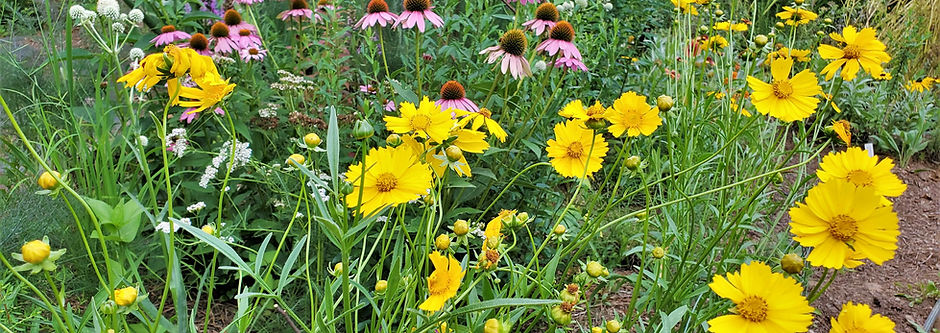Frog Fruit Is a Valuable Native Groundcover!
- ljmarkson

- Sep 4, 2021
- 2 min read
My September native plant pick #2 is a fantastic low-growing, semi-evergreen groundcover called frog fruit (phyla nodiflora, formerly lippia) It is also known by many other names including turkey tangle fogfruit, frog fruit verbena, matchstick plant, and matchhead. Frog fruit was once known as fog fruit because it came up in meadows after haying and fog is found in meadows. Through a long linguistic game of telephone it became frog fruit: fog=meadows=dampness=frogs? Eat the Weeds explains in depth the details around the history of frog fruit's botanical and common names.

Frog fruit spreads vigorously and flowers best in sunny damp spots, but does well anywhere I put it in my rewilded Atlanta yard - as long as it gets a bit of sun. It also blooms for almost six months starting in May!

At the top of my list of go-to groundcovers for challenging areas is frog fruit. I’ve been impressed with how resilient it is in the area where our right-of-way meets our driveway and the edges get flattened from time to time. Now that lawns becoming out of style frog fruit is gaining popularity as a lawn alternative. It forms a maintenance-free dense mat of flowering foliage, and works well where there is not too much foot traffic. I can imagine frog fruit would make an equally carefree option to spill over either a hanging or tall planter. If I was designing a children’s garden, I would add it to a self-contained area just for the name and the cute frog fruit plant marker I could make!

A wide variety of pollinators visit my frog fruit's nectar-rich tiny flowers, including small bees, wasps, flies, and butterflies. Frog fruit is the host plant for three butterflies: the phaon crescent, buckey, and white peacock (in Atlanta we are not in the range of the white peacock).

This is a high wildlife value, attractive and low maintenance native groundcover that is unfortunately difficult to find at native plant nurseries. I’m not sure why because frog fruit spreads by rhizomes that are super easy to divide. All the frog fruit in my yard is from a few cuttings my friend Leslie from Pollinator Friendly Yards FB group gave me. If you live in Atlanta, I’m always happy to pay it forward and give a few cuttings to anyone that doesn’t use pesticides, herbicides or ecosystem destroying machines like gas powered leaf blowers. Gardening for wildlife with native plants is much different than traditional gardening which has an odd focus on coveting hard to find exotic plants. We all need to help each other plant native! You might be able to find frog fruit at plant sales run local organizations where members donate plants, or if all else fails, order it from an online source. It is worth trying to find this gem!



.jpg)
